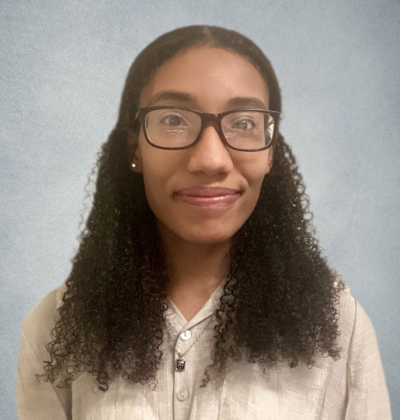

Kiara Ortiz


My First Experience with the Women in Science Program!
One of Dartmouth's programs that I have had the pleasure to take part in is the Women In Science Program! This program, also referred to as WISP, is an opportunity for first-year students to engage in the scientific research community at Dartmouth. Though typically beginning in the winter term, this spring, students interested in WISP will be matched with research laboratories around campus after conducting a series of interviews and indicating scientific interests. In order to prepare to work in a lab, WISP provided a series of courses and lectures this winter term to expose us to new skill sets.
A component of this virtual curriculum included live events that ranged from conversations with WISP alumnae to WISP science faculty spotlights! We learned about how a great number of faculty at Dartmouth are open to mentoring students in the labs and are even excited to work with students who have minimal background in the topic of research. It was comforting to hear this because I am looking forward to experiencing new sectors of science with research as the outlet!
Additionally, we were provided with various virtual lessons that focused on increasing any skills that might be helpful in a lab. For example, I started to learn Python through courses provided by Dartmouth and am hoping to delve deeper into the topic. I took AP Computer Science Principles in high school, but my coding experience was still very limited. The first module of the Python course introduced me to the fundamentals such as learning to assign variables and how to integrate different types of data. The lesson plans are pre-recorded and Dartmouth provides information on how to download free platforms on your computer in order to successfully learn how to code. More courses include Intro to R, Intro to Qualtrics, and a Matlab session. My favorite, however, would have to be watching the movie Coded Bias and engaging in a fireside chat with the director, Shalini Kantayya. This movie exposed the critical sexist and racial biases within the sector of artificial intelligence and guides the viewers through stories of various female researchers and organization leaders who shed light on the embedded discrimination in related fields.
My next steps moving forward with WISP is to complete a student profile where I share information about STEM classes I have taken, scientific interests, and any skill sets I have. Thanks to our virtual curriculum, I can now say that I know some Python! Afterward, I will email faculty who are interested in mentoring a WISP student and then I look forward to matching with a lab!
Posts You Might Like

Dartmouth offers a variety of study abroad programs. In this post, I interviewed a member of the class of 2027 who went on the ASCL Chinese LSA+ during the summer of 2024.


You have to see it to believe it—my Winter Carnival scrapbook


A lesser-known aspect of the college application, the art portfolio is a great way to showcase your creative work!


Winter Carnival kicked off this weekend with an opening ceremony straight out of Jurassic Park!


A quick review of common ways to get to Dartmouth!


Read this post to hear about my first time skiing on Dartmouth's own ski mountain! My friends and I had so much fun :)


It truly does feel like a winter wonderland! Join me as I recap my first Winter Carnival at Dartmouth.


A weekend of embracing the cold and finding fun activities to do! From winning money at a game show to the Annual Snowball Fight, this weekend is a core memory of my experience with Dartmouth winters!


"Only three classes?!" The typical response I get from someone outside of Dartmouth. Come and join as I describe how those three classes actually feel in a ten week term!
